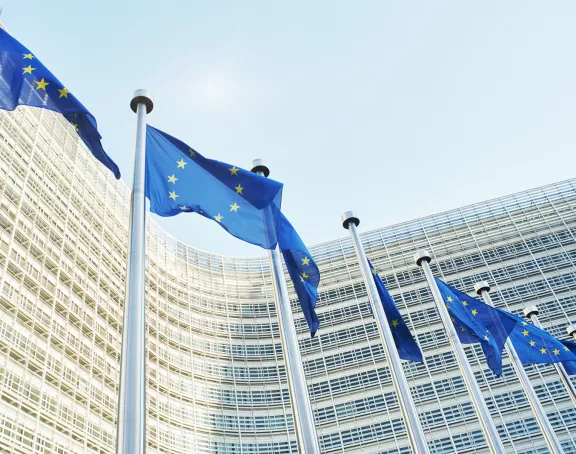EU merger guidelines review: catching up with the times?
A potential major overhaul of EU merger control review began on 8 May 2025 with the launch of a public consultation on the EU merger guidelines. Although the revised EU merger guidelines are not expected until late 2027, companies should be aware that their M&A transactions may still be assessed based on broader strategic and societal considerations, alongside ongoing efforts to prevent “killer acquisitions”. Stakeholders should therefore speak up now.
Catching up
The current guidelines on horizontal mergers (between actual or potential competitors operating in the same relevant market) and non-horizontal mergers (between companies operating at different levels of the supply chain or in closely related markets) date back around 20 years. Therefore, an update seems only logical. However, a review is also necessary to catch up with current digital, societal and geopolitical challenges, as emphasised in the mission letter to Executive Vice-President Ribera, the Draghi report, and the EU Competitiveness Compass.
Groundbreaking review?
In addition to a general questionnaire with high-level questions on merger assessment methodologies, the consultation includes an in-depth questionnaire to primarily seek feedback by “stakeholders knowledgeable in merger control”. The in-depth questionnaire is accompanied by seven focused papers on topics such as digitalisation, innovation, efficiencies, sustainability, defence, and labour considerations. These papers aim to stimulate debate on issues that “reflect broader trends that are relevant for the productivity and competitiveness of the whole European economy”. Stakeholders should therefore seize this opportunity to share their views on these topics to help shape the Commission’s potentially groundbreaking merger review framework.
Stakeholders’ views are being requested on the following, for instance:
- Competitiveness and resilience: whether and how EU merger control should support companies to scale up in global markets, while reducing their dependence on non-EU suppliers. This objective must be balanced against the risk of innovation-harming ‘killer acquisitions’ and excessive market consolidation, as several national competition authorities have cautioned.
- Market power: whether rebuttable presumptions based on market metrics should be introduced that shift the burden of proof to companies to demonstrate that their transactions do not have anticompetitive effects. Furthermore, views are being invited on alternative approaches to assessing market power and on whether the analytical frameworks for coordinated effects and foreclosure effects are still fit for purpose.
- Innovation and other dynamic elements: how to develop a framework for assessing dynamic merger effects on innovation, together with relevant metrics and benchmarks, that can strike a balance between ‘killer acquisitions’ and acquisitions that accelerate innovation. In parallel, the Commission has launched a call for tenders for an economic study on the dynamic effects of mergers.
- Sustainability and clean technologies: how to prevent ‘green killer acquisitions’ while allowing procompetitive mergers that support climate and sustainability objectives. Input is requested on the methodology and parameters to be included in merger assessments for sustainability considerations. Additionally, stakeholders are asked how to quantify and verify merger-generated sustainability benefits that could offset negative effects on competition (‘green efficiencies’).
- Digitalisation: how to conduct an extended forward-looking assessment of mergers in digital and other fast-moving markets to accurately capture the effects of a transaction and prevent market entrenchment and potential 'killer acquisitions'. Furthermore, stakeholder feedback is sought on whether privacy and data protection concerns should be factored into merger assessments.
- Efficiencies: which type of evidence or metrics is appropriate for assessing efficiency claims, how to determine the required timing and likely realisation of claimed efficiencies, and how to establish the existence and viability of alternative, less harmful, options that achieve the same benefits.
- Public policy, security and labour market considerations: how to incorporate the impact of mergers on wider societal goals into merger assessments. For instance, applying a labour market theory of harm to a merger may help prevent negative effects for workers in certain cases. Moreover, increased market concentration in the AI and media industries could affect media plurality, potentially enabling a small number of dominant companies to influence public opinion. In addition, feedback is sought on the balancing of defence and competition interests when assessing mergers in the EU defence sector.
The consultation demonstrates that the ongoing review of the merger guidelines is undoubtedly comprehensive. However, expectations of a groundbreaking outcome may need to be tempered. Many of the theories of harm identified in the focused papers stem from previous merger cases, and the Commission itself characterises the review as an “evolution, not a revolution”.
Nevertheless, the consultation does show a clear willingness to look beyond ‘traditional’ merger assessments. This is a trend we also see at the national level. For example, the Netherlands Authority for Consumers and Markets (ACM) has called for new theories of harm that extend beyond traditional price increases, such as deteriorating labour conditions, diminished media plurality, or increased environmental pollution. The ACM has previously considered, labour market issues in merger cases and is currently set to grant clearance for a media merger on the condition that safeguards are put in place to protect media pluralism.
Next steps
Stakeholders have until 3 September 2025 to respond to the consultation. The Commission will subsequently publish these responses, along with a summary of the main points and conclusions, on its website. Additionally, workshops will be organised for stakeholders, giving them an opportunity to comment on a draft version of the revised merger guidelines.
To the disappointment of several Members of the European Parliament (MEPs), the final merger guidelines are not expected to be published until late 2027. MEPs have urged the Commission to speed up the process and broaden it to include a review of the European Merger Regulation itself, citing “pressing EU priorities on competitiveness and overall policy goals”.
Regardless of the outcome, companies involved in M&A transactions should anticipate that a wider lens may be applied to their mergers under the evolving EU merger policy. Now is the time for them to voice their opinions on how these broader considerations should be incorporated into merger assessments.


